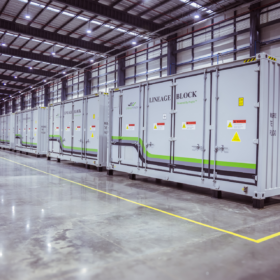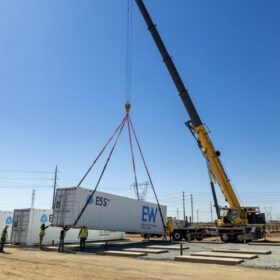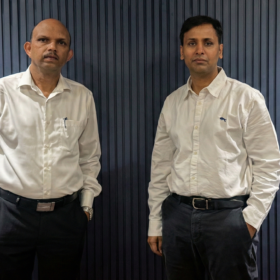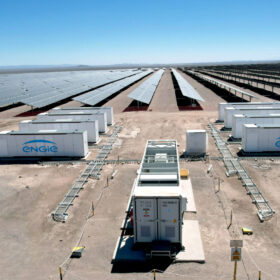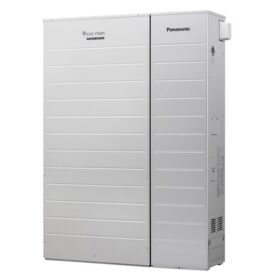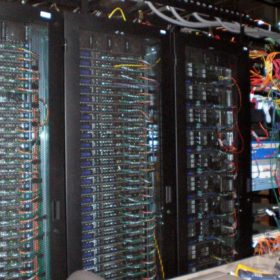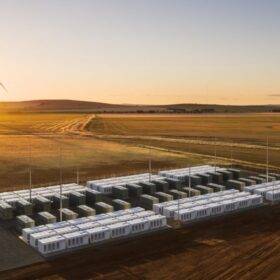Pace Digitek secures INR 1,587 million telecom battery order from Reliance Industries Ltd
Pace Digitek Ltd’s arm Lineage Power has received an order from Reliance Industries Ltd for the supply of high-capacity lithium-ion battery packs. Under the agreement, Lineage Power will manufacture and supply 50,000 units of 48V 15S1P 314Ah Lithium-Ion battery packs to provide backup power for telecom loads.
ESS Tech acquires VoltStorage GmbH to expand long-duration energy storage
US-based ESS Tech has acquired the assets and intellectual property of Germany’s VoltStorage GmbH to strengthen its long-duration energy storage (LDES) portfolio and combine two iron-based flow battery technologies.
Suzlon strengthens leadership to support full-stack renewable expansion
Suzlon has formed a Group Executive Council (GEC), elevated JP Chalasani to the GEC, and appointed a new group CEO to drive its business transformation from a wind energy solutions provider to a full-stack renewable energy solutions conglomerate.
Hycosys raises $1 million from MGF Kavachh to develop hydrogen-compatible micro gas turbines
The seed round will aid in accelerating system integration, pilot deployments, and fuel the commercialisation roadmap of the Hycosys’ indigenous hydrogen-compatible micro gas turbine platform with applications across distributed power, aerospace and mobility.
Corporate PPA deals down 10% in 2025 as AI demand plugs gaps
BloombergNEF global report finds corporate clean energy procurement fell in 2025 for first time in nine years amid negative pricing and policy uncertainty. Big Tech leads procurement as number of cPPA offtakers halved in the United States. Solar remains the top generating technology for cPPAs.
India’s electricity transition unfolds unevenly across states
A new report by IEEFA and Ember finds that India’s electricity transition is unfolding differently across states, shaped by variations in resource endowments, development pathways, and institutional capacities. While some states are already leading in renewable energy deployment and grid readiness, others are building momentum, presenting significant opportunities for accelerated progress through targeted, state-specific policy interventions.
TEXMiN, Russia’s GIREDMET ink pact on rare earth and critical mineral technologies
The TEXMiN Foundation, IIT (ISM) Dhanbad, has signed an MoU with GIREDMET State Research and Design Institute of Rare Metal Industry, Russia, to collaborate on rare earth processing, critical minerals, advanced materials, and translational research across the mining value chain. The partnership will also focus on hydrometallurgical recycling technologies for lithium-ion batteries to recover valuable metals.
Panasonic debuts fuel cell cogeneration system for PV‑integrated homes
Panasonic has launched a new home fuel cell system for detached houses, designed to boost solar self-consumption through HEMS‑based smart scheduling. The unit generates electricity and heat from gas, supports demand response, and can supply emergency power during outages.
India must leverage its mature renewable energy base to sustainably power its global AI data centre hub ambitions: Deloitte report
India’s expanding renewable energy base and clean power can play a central role in supporting the next phase of data center growth, supported by smarter power sourcing, stronger grid readiness and coordinated policy action to ensure reliable and sustainable energy at scale, says a new report by Deloitte Asia Pacific.
Global utility-scale battery capacity rises 12-fold in 2020-24 period
The global capacity of utility-scale batteries increased more than 12-fold between 2020 and 2024 to 124 GW, while average battery costs fell 58% over the period, according to the Electricity 2026 report from the International Energy Agency (IEA).
